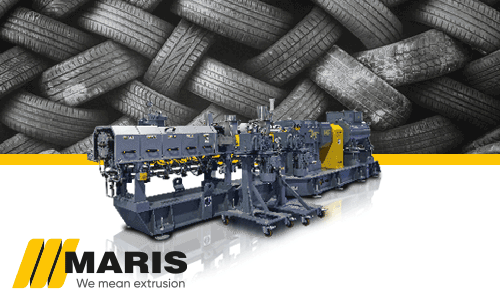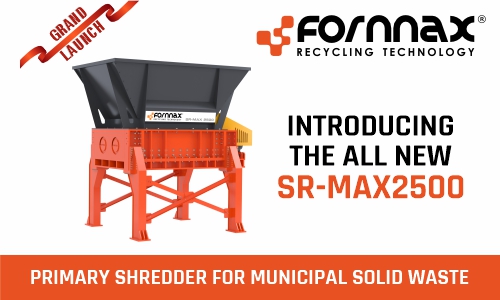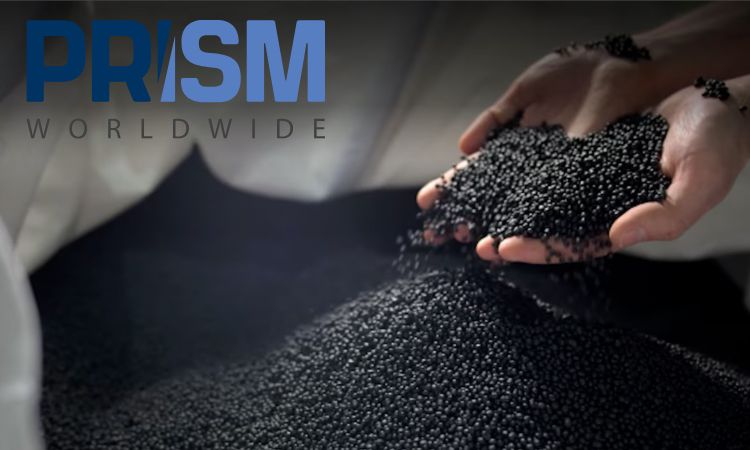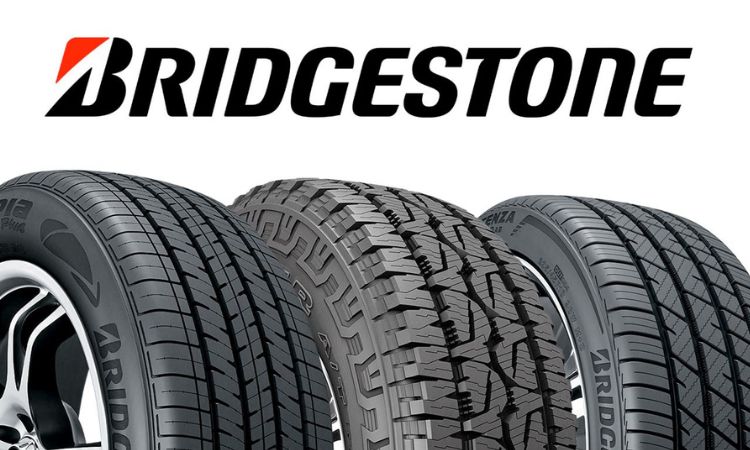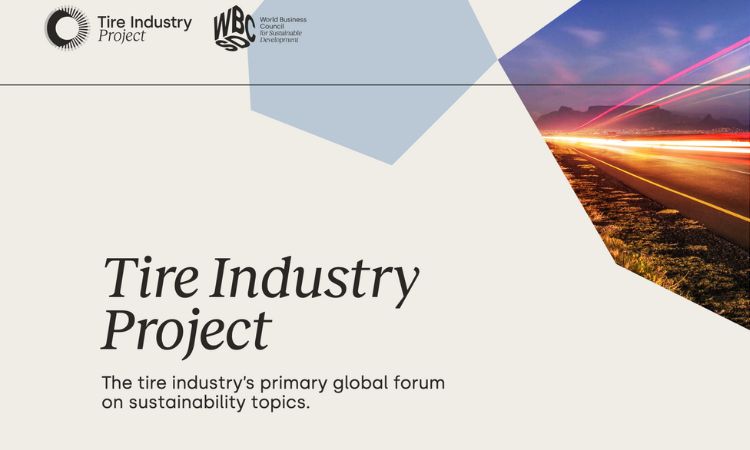Weibold Academy: Advancing sustainability in the tire industry
Weibold Academy article series discusses periodically the practical developments and scientific research findings in the end-of-life tire (ELT) recycling and pyrolysis industry.
These articles are reviews by Claus Lamer – the senior pyrolysis consultant at Weibold. One of the goals of the review is to give entrepreneurs in this industry, project initiators, investors and the public, a better insight into a rapidly growing circular economy. At the same time, this article series should also be a stimulus for discussion.
For the sake of completeness, we would like to emphasize that these articles are no legal advice from Weibold or the author. For legally binding statements, please refer to the responsible authorities and specialist lawyers.
Introduction
Globally, over one billion tires become unusable yearly, presenting a valuable resource for the circular economy. Efforts to manage end-of-life tires (ELTs) are underway, with various stakeholders collaborating to improve recycling rates and reduce tire dumping. The World Business Council for Sustainable Development (WBCSD) Tire Industry Project (TIP) has facilitated workshops to foster cooperation among stakeholders in regions such as the US, Europe, and China. While progress has been made in ELT recycling rates, challenges remain, including policy inconsistencies and inadequate market reporting.
However, TIP’s stakeholders are enthusiastic about sustainable practices and circular economy principles. They recommend measures to enhance ELT management, including mobilizing stakeholders, utilizing circularity metrics, and facilitating knowledge exchange.
Actions are proposed for TIP, the United States Tire Manufacturers Association (USTMA), and the European Tyre and Rubber Manufacturers' Association ETRMA to support these recommendations.
The Tire Industry Project (TIP)
The Tire Industry Project (TIP) - currently comprised of 10 leading tire companies - is the primary global forum for the tire industry on sustainability issues. Formed in 2005, TIP serves as a global, voluntary, CEO-led initiative, representing approximately 65 percent of the world’s tire manufacturing capacity.
TIP’s members are (in alphabetical order) Bridgestone, Continental, Goodyear, Hankook, Kumho, Michelin, Pirelli, Sumitomo Rubber Industries, Toyo Tires, and Yokohama.
Bridgestone, Continental, Goodyear, and Michelin co-chair TIP. The member CEOs regularly review project progress and approve workplans, which are also assessed by an Assurance Group of independent scientists for scientific validity.
TIP’s Focus Areas
Environmental Key Performance Indicators for Tire Manufacturing
TIP has engaged an independent third party to assess environmental key performance indicators (KPIs) for tire manufacturing operations. The fifth TIP report covers KPIs for 2009-2021, offering insights into the sector's environmental performance and aiding individual company efforts to enhance manufacturing sustainability.
Tire Product Category Rules (PCR)
TIP has developed a Product Category Rules (PCR) document, a guideline for tire manufacturers to determine environmental impacts for Environmental Product Declarations (EPDs). This comprehensive, global PCR enables consistent evaluation, fostering environmental transparency and aiding in the improvement of the tire industry's environmental footprint.
End-of-life tire (ELT) management Toolkit
Improving end-of-life tire (ELT) management is a priority for TIP members due to the significant number of tires reaching the end of their lifespan annually. ELTs are valuable resources for the circular economy, and effective management systems contribute to their reuse while preventing tire dumping. TIP's research informs a toolkit outlining steps for establishing and enhancing ELT management, highlighting the benefits of well-functioning systems. These actions are integral to the sustainability roadmap recently published for the tire industry.
Perspectives on End-of-Life Tire (ELT) Management
TIP, in collaboration with regional tire trade associations, conducted workshops in the US, Europe, and China to address challenges and solutions in end-of-life tire (ELT) management. While all regions showed improved ELT recycling rates over two decades, significant room for improvement was identified. The report suggests measures to empower stakeholders with tools and frameworks for effective collaboration in developing more circular ELT management systems.
Global ELT Management
The 2019 TIP report, "Global ELT Management," provides insights into end-of-life tire (ELT) practices across 45 countries and supports TIP's goal of advancing global ELT management by sharing best practices.
The Platform for Sustainable Natural Rubber
TIP, alongside other stakeholders, drives change in the natural rubber supply chain through the Global Platform for Sustainable Natural Rubber (GPSNR). Recognizing natural rubber's importance in tire production, TIP aims to ensure sustainable practices throughout the supply chain, benefiting communities and the environment. GPSNR's priorities include harmonizing standards for human rights, preventing land grabbing, and increasing transparency. With binding commitments and industry support, GPSNR aims for meaningful change. TIP spearheaded GPSNR's development and will continue to support it, emphasizing collaboration for a sustainable future in natural rubber production.
Nanomaterials
A study proposes a method to assess exposure to nanostructured materials like carbon black (CB) and amorphous silica (AS) in tire manufacturing. By combining air sampling and elemental analysis, it quantifies potential workplace exposures. Initial tests at one facility showed CB and AS as predominant nanoscale particles, confirmed in subsequent tests at two facilities. This method allows for estimating worker exposure to specific materials in mixed dust environments, aiding occupational health and safety practitioners, especially in the absence of established exposure limits for nanomaterials.
Generation of Cryogenically Milled Tire Tread
In November 2019, Cardno ChemRisk assisted the Tire Industry Project (TIP) in generating cryogenically milled tire tread (CMTT) particles. This report outlines the methods used for CMTT generation, using similar tire types as those used for tire and road wear particles (TRWP) at the Karlsruhe Institute for Technology (KIT). Three tire types were selected to represent passenger car tires of different kinds: winter and summer tires, and tires with carbon black or amorphous silica as primary fillers. The report emphasizes the importance of separating and processing tread materials to avoid contamination from other parts of the tire, as only the tread compound comes into contact with the road surface during normal driving conditions.
Tire and Road Wear Particles (TRWP)
The website "Tire and Road Wear Particles" (tireparticles.info) is presented by the Tire Industry Project (TIP) and focuses on understanding the environmental and health impacts of Tire and Road Wear Particles (TRWP). These particles are a byproduct of tire usage, resulting from the friction between tires and road surfaces. TIP supports scientific research on the physical, and chemical characteristics of TRWP, their presence in the environment, and their potential effects on health. The project aims to enhance scientific understanding and share findings with stakeholders.
TIP’s workplan for 2024 and 2025
On November 1, 2023, 10 CEOs from tire manufacturing companies in Laguna Niguel endorsed a two-year sustainability plan initiated by the Tire Industry Project (TIP). Led by Executive Director Larisa Kryachkova, TIP's new strategy prioritizes research, engagement with stakeholders, and action in environmental, social, and governance (ESG) domains. Members, including major firms like Bridgestone and Michelin, regularly review and approve TIP's plans, with input from independent scientists such as Professor John Spengler. The 2024-2025 plan focuses on addressing tire emissions, end-of-life tire management, and sustainability assessments, building on previous accomplishments like scientific research and regional workshops. TIP aims to foster global collaboration to enhance sustainability within the tire industry.
The 2024-2025 workplan of the Tire Industry Project (TIP) encompasses several key components:
- Tire-emission research and mitigation: TIP will host a global conference to advance scientific understanding and action on tire emissions, including tire and road wear particles (TRWP). Open calls for projects will stimulate studies into tire emissions beyond TRWP. The project will generate representative tire emissions to support risk assessments and launch TRWP-mitigation pilot projects.
- End-of-life tire management: TIP aims to enhance the sustainable management of end-of-life tires (ELT) by contributing expertise to update international guidelines. Workshops, tools, and data will be provided to build stakeholder capacity for circular ELT management.
- More effective sustainability assessments: TIP will develop tire-specific sustainability definitions and methodologies to improve circularity and sustainability assessments in the industry. This initiative aims to enhance transparency and comparability of sustainability reporting across the sector.
Building on achievements from the previous workplan (2022-2023), TIP highlights include the publication of peer-reviewed scientific studies, the development of methods for identifying TRWP in environmental samples, and research on TRWP aging. Additionally, TIP conducted regional workshops on end-of-life tire management, culminating in a report recommending measures for more circular ELT management systems. Expansion of reporting on key performance indicators for assessing industry contributions to UN Sustainable Development Goals targets was also noted.
Summary
The Tire Industry Project (TIP) is at the forefront of advancing sustainability in the tire industry, focusing on key areas like tire emissions, end-of-life tire management, and sustainability assessments. TIP's 2024-2025 workplan includes initiatives such as hosting global conferences, enhancing ELT management, and developing sustainability definitions and methodologies. Backed by major tire manufacturers like Bridgestone and Michelin, TIP aims to drive global collaboration and innovation for more sustainable tire industry.
Weibold is an international consulting company specializing exclusively in end-of-life tire recycling and pyrolysis. Since 1999, we have helped companies grow and build profitable businesses.





